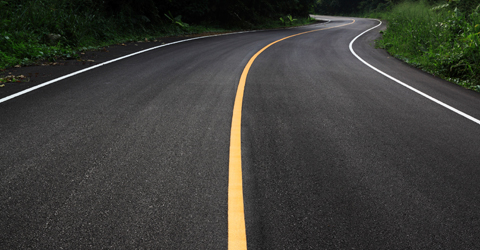Raise Your Business Space with Hot Mix Asphalt Paving Solutions
Discovering the Ecological Benefits of Warm Mix Asphalt
The utilization of Hot Mix Asphalt in facilities jobs provides a compelling instance for sustainable growth and ecological stewardship. By diving right into the elaborate details of its production procedures and the innovative usage of recycled materials, a much deeper understanding arises of how this technology surpasses plain surface area applications. The environmental advantages of Hot Mix Asphalt expand far past preliminary impacts, supplying a nuanced point of view on how this material can pave the method for a greener future.

Reduced Greenhouse Gas Emissions
The manufacturing process of Warm Mix Asphalt entails heating up the blend of accumulation and asphalt binder to high temperatures. By integrating recovered asphalt pavement and recycled asphalt roof shingles right into the mix, the requirement for virgin materials is lowered, leading to energy cost savings and reduced discharges linked with removal and processing.
Studies have shown that Warm Mix Asphalt pavements have a smaller carbon impact over their life cycle contrasted to other pavement choices. The durability and recyclability of Hot Mix Asphalt even more enhance its ecological benefits by lowering the requirement for frequent upkeep or replacement, thereby preserving resources and decreasing emissions connected with repair tasks.
Energy Performance and Preservation
The manufacturing procedure of Warm Mix Asphalt not just reduces greenhouse gas discharges but additionally contributes dramatically to power effectiveness and preservation efforts. Power performance is an essential benefit of Hot Mix Asphalt production compared to various other sidewalk types. The longevity of Warm Mix Asphalt decreases the frequency of maintenance and repair, leading to lasting energy financial savings.
Sustainable Sidewalk Solutions

One trick aspect of sustainable pavement services is using recycled materials such as redeemed asphalt sidewalk (RAP) and recycled asphalt shingles (RAS) By including these materials into the asphalt mixtures, the need for virgin sources is minimized, causing lower energy consumption and greenhouse gas exhausts throughout manufacturing. In addition, the reuse of these materials assists divert waste from land fills, adding to a much more circular and lasting economy.
In addition, lasting sidewalk remedies concentrate on optimizing sidewalk layout to improve performance and long life. Techniques such as warm mix asphalt (WMA) and stone mastic asphalt (SMA) boost the resilience and durability of sidewalks, reducing the demand for constant repair work and substitutes. By carrying out these cutting-edge strategies, facilities programmers can develop sidewalks that not only meet high-performance requirements yet likewise minimize their ecological footprint.
Minimized Environmental Effect
Warm mix asphalt, in specific, offers numerous advantages that add to reducing the general environmental footprint of roadway infrastructure. One crucial facet is the recyclability of asphalt, which can be reused multiple times without endangering its quality - Regrading.
Additionally, the manufacturing of hot mix asphalt gives off reduced degrees of greenhouse gases compared to additional hints various other pavement materials, making it a more eco pleasant choice. The energy effectiveness of asphalt plants has actually likewise boosted over the years, causing decreased gas intake and lower exhausts. Additionally, the smooth surface of warm mix asphalt lowers rolling resistance for vehicles, leading to lower gas consumption and reduced air pollution from automobile emissions.
Payment to Environment Change Mitigation
Warm mix asphalt plays an essential role in mitigating environment adjustment via its sustainable properties and lowered ecological impact. One significant payment to environment change reduction originates from the energy efficiency of warm mix asphalt production. Compared to various other sidewalk alternatives, the manufacturing process for warm mix asphalt takes in much less power and sends out lower degrees of greenhouse gases, thus lowering its general carbon index footprint.
Furthermore, warm mix asphalt's ability to show sunshine, called albedo, aids in decreasing city heat island effects. By reducing warm absorption and retention, warm mix asphalt pavements can lower the demand for cooling in city locations, consequently decreasing greenhouse gas exhausts associated with energy consumption for cooling down functions.
Additionally, the imp source longevity and recyclability of hot mix asphalt additionally boost its environment modification mitigation capacities. Regrading. The long lifespan of asphalt pavements minimizes the requirement for regular repair services or substitutes, ultimately lowering the carbon discharges connected to road maintenance tasks. The recyclability of asphalt materials reduces the demand for virgin resources and reduces the ecological influence of pavement building, straightening with sustainable methods for environment change mitigation.
Verdict
To conclude, the environmental benefits of Hot Mix Asphalt show its substantial contribution to lowering greenhouse gas emissions, conserving energy, and reducing environmental impact. This lasting pavement solution aligns with climate adjustment mitigation initiatives, advertises resource conservation, and enhances facilities development. By using recycled materials, energy-efficient manufacturing processes, and long lasting layout, Hot Mix Asphalt plays a critical duty in cultivating a more eco friendly approach to facilities building and construction.
The manufacturing procedure of Hot Mix Asphalt involves heating up the blend of aggregate and asphalt binder to high temperatures. By integrating recovered asphalt pavement and recycled asphalt roof shingles into the mix, the need for virgin materials is minimized, leading to energy financial savings and lowered emissions linked with extraction and handling.
One key element of sustainable sidewalk solutions is the usage of recycled products such as redeemed asphalt sidewalk (RAP) and recycled asphalt shingles (RAS) Techniques such as cozy mix asphalt (WMA) and stone mastic asphalt (SMA) boost the toughness and strength of pavements, minimizing the demand for constant repairs and substitutes. Contrasted to other sidewalk alternatives, the manufacturing process for warm mix asphalt consumes much less energy and sends out reduced degrees of greenhouse gases, therefore decreasing its general carbon footprint.